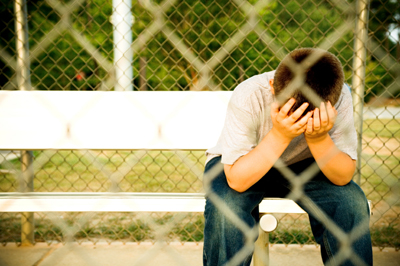This blog is chock full of my own experiences with depression and addiction. I even hint here and there about how the addictive behavior runs in the family. But I’ve avoided the story of depression among siblings until now. This post is about my older sister, who had it much harder than me, and whose progress over the years has inspired me.
I haven’t mentioned it up to this point because it’s her story and her business. I didn’t want to violate her privacy. But recently I’ve realized her story is an important part of my own. So I sought and received her permission to tackle it head on. Hopefully, this post validates the trust she’s putting in me.
Wendi’s is a success story, whether she realizes it or not.
Growing up, me, Wendi and Michael had our individual problems. I had the Crohn’s Disease, Michael had the asthma that eventually killed him, and Wendi was caught in the middle of all that.
Sometime around 1991, things started coming to a head. She started plunging into deep depressions. Between 1991 and 1998, I can remember three occasions where this led to her hospitalization. She talked openly about wanting to kill herself. One such occasion, in 1998, was a couple months before my wedding. Since it was only two years after Sean Marley’s suicide, this made me more angry than anything. My anger was a selfish one. How dare she get suicidal and hospitalized and put me through this all over again. And how dare she do this while I was getting ready for my wedding.
I realize something now that I didn’t realize back then: Depression and the collateral damage it causes to others is never really in the sufferer’s control to stop. And it can care less about timetables. Mental illness doesn’t take breaks for holidays and weddings, for the convenience of others. Given my own battle with depression in subsequent years, I get it now.
I’m sorry for getting angry with her back then.
There’s something else I feel sorry about: Because of my own mental turmoil, I chose to avoid situations that made me uncomfortable. Wendi’s depression made me very uncomfortable. The result is that I wasn’t the helpful younger brother I should have been.
In 2003, Wendi caught a bizarre infection the doctors couldn’t make sense of. She spent a couple weeks in ICU and pumping her full of antibiotics didn’t seem to help her much. A couple times we were certain she wouldn’t make it. But since then, things have gotten better for Wendi. Not easier. Maybe not even happier. But better.
A couple years earlier, she had announced to the family that she was gay. It took some family members by shock, but not me. When I thought about a couple of the more “normal” relationships she had tried to nurture in past years and the depression she went into when things didn’t work out, it all made perfect sense to me. She was trying to live a life that didn’t gibe with her true nature.
When she came clean about that, her life didn’t get easier. But I suspect, because she found a way to be truthful with herself, that some things got easier to deal with. She’s been through her ups and downs since then. A marriage didn’t work out. She suffered some nasty complications from gastric bypass surgery. But she has moved on from those difficulties much more quickly than in past difficulties. It’s been heartening to see.
This post is my long overdue hat tip to you, Wendi. I love you.



